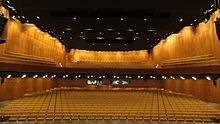
The Wave-Gotik-Treffen is an annual world festival for "dark" music and "dark culture" in Leipzig, Germany. 150+ bands and artists from various backgrounds play at several venues throughout the city over four days on Whitsuntide. The festival also features multiple all-night dance club parties, several fairs with medieval, gothic, and related merchandise, a variety of cultural exhibitions and performances, large themed picnics, and a number of unofficial fringe events.
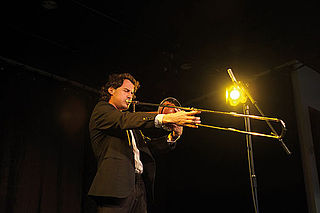
JazzFest Berlin is a jazz festival in Berlin, Germany. Originally called the "Berliner Jazztage", it was founded in 1964 in West Berlin by the Berliner Festspiele. Venues included Berliner Philharmonie, Haus der Kulturen der Welt, Volksbühne, Haus der Berliner Festspiele and the Jazzclubs Quasimodo and A-Trane.
Barbara Morgenstern is a German electronic music artist, keyboardist and singer.
Andrea Breth is a stage director. From 1999 to 2019 she was in-house director at the Burgtheater in Vienna and also directed for the Salzburg Festival.

Sasha Alexandra Waltz is a German choreographer, dancer and leader of the dance company Sasha Waltz and Guests.

The Internationale Maifestspiele Wiesbaden is a theater festival in Wiesbaden, Germany. Established in the late 19th century after the Bayreuth Festival, the festival is one of the most distinguished international theatre and music festivals in the world. It is presented annually in May at the Hessisches Staatstheater Wiesbaden, the State Theatre of Hesse in the capital Wiesbaden. The festival currently features performances of operas, ballets, plays and musicals. Visiting companies, mostly from European theaters, present their recent productions along with performances of the Theater Wiesbaden. Concerts from a wide array of music genres are featured as well as artistic circus acts and modern dance presentations. Lectures, recitals, cabaret performances, art showings and readings are also part of the program.
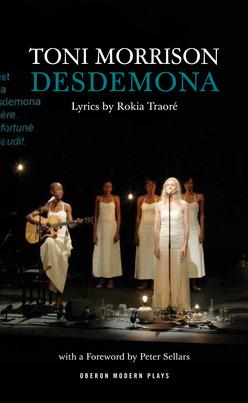
Desdemona is a play by Toni Morrison. It was first produced in Vienna in May 2011. The title character of the play is Desdemona, the wife of the title character in Shakespeare's Othello. The 2011 play arose from a collaboration between Morrison, director Peter Sellars, and musician Rokia Traoré. About a decade earlier, Morrison and Sellars had disagreed about Shakespeare’s play, which Sellars detested but Morrison valued. They agreed that Sellars would stage “Othello” and Morrison would respond to in another way, resulting in her Desdemona.

The Berliner Theatertreffen is a two-week long theatre festival occurring yearly in May in Berlin, Germany. It is organised by the Berliner Festspiele corporation, funded by the Federal Cultural Foundation of Germany.
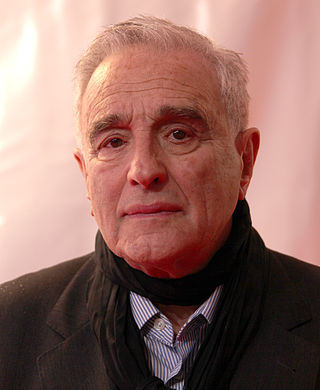
Michael Degen was a German-Israeli actor, in film and theatre, as well as a theatre director and writer.
Hans Hollmann was an Austrian-Swiss theatre director and actor. He also worked as a university lecturer and had a doctorate in jurisprudence. Despite having been born in Austria, for many years Hollmann lived with his family in Basel.
Christoph Marthaler is a Swiss director and musician.
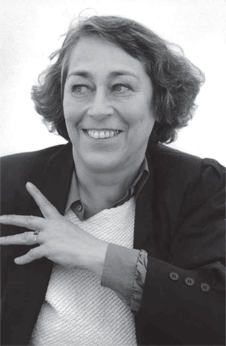
Christel Hoffmann is a German theater scholar, dramaturge and pedagogue.

Peter Palitzsch was a German theatre director. He worked with Bertolt Brecht in his Berliner Ensemble from the beginning in 1949, and was in demand internationally as a representative of Brecht's ideas. He was a theatre manager at the Staatstheater Stuttgart and the Schauspiel Frankfurt. Many of his productions were invited to the Berliner Theatertreffen festival. He worked internationally from 1980.
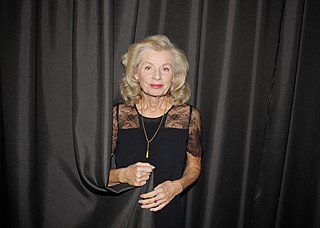
Christine Mielitz is a German theatre and opera director.

Judith Stapf is a German classical violinist.
MaerzMusik is a festival of the Berliner Festspiele and has been held annually since March 2002 at the Haus der Berliner Festspiele and other venues. It is the successor festival to the Musik-Biennale Berlin and is considered one of the most important festivals for Neue Musik in Germany. The artistic director of MaerzMusik is Kamila Metwaly.

The Haus der Berliner Festspiele is a theater in Berlin.
Jing Xiang is a Chinese German actress.
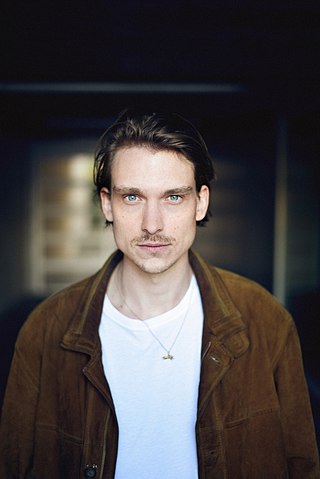
Daniel Sträßer is a German actor and member of the ensemble of the Burgtheater in Vienna.
Tilmann Köhler is a German theatre stage director who has worked with the ensembles of the Deutsches Nationaltheater Weimar and the Staatsschauspiel Dresden. His broad repertoire includes classical plays and world premiered. Several of his productions have been invited to international festivals. Köhler turned to also staging operas in 2013, beginning with Handel's Teseo at the Oper Frankfurt, where he returned to direct Martin's Le Vin herbé, Mozart's Le nozze di Figaro and Zemlinsky's Der Traumgörge.

